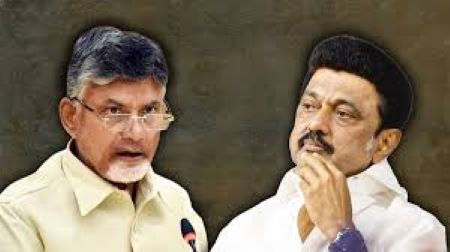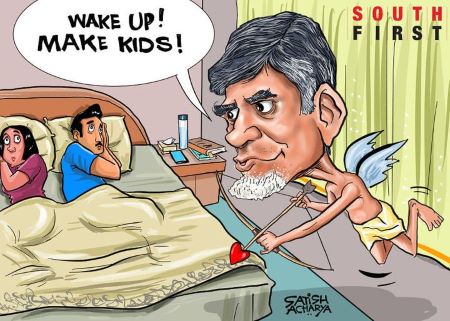As the country grapples with its growing population, political leaders propose controversial measures that raise questions about individual rights and societal progress.
WITH OVER 1.4 BILLION people, India is not just the world’s most populous country; it is a nation grappling with the complexities of growth and governance. One often encounters people, including leaders, who emphasize that the country’s biggest problem is its population. They advocate for the government to intervene with strict actions and rules to curb the population explosion.
These individuals are partly correct and partly incorrect. There is no doubt that the country has been hindered by its burgeoning population, impacting our development and growth. It is also true that our infrastructure, including health, education, and sanitation, has remained inadequate due to population pressure.
 However, what they find difficult to believe is that our population growth has already decelerated and that our fertility rate is almost 2.1, which is considered ideal for maintaining the population at a stable level.
However, what they find difficult to believe is that our population growth has already decelerated and that our fertility rate is almost 2.1, which is considered ideal for maintaining the population at a stable level.
There is a distinct possibility that this rate could decline further with the spread of literacy and awareness.
In metropolitan areas and large cities, the rate has already fallen below that level, and an increasing number of couples are either having only one child or have decided not to have any children.
Although the 2021 census has been delayed and thus data is only available from the 2011 census, numerous government statistics—including those based on the National Health Survey reports—confirm that the rate of population growth is not alarming.
In fact, it could become a problem if the fertility rate drops any further, as has occurred in China, which has had to encourage couples to have more children after its disastrous one-child policy.
As population dynamics shift, so do the political landscapes, leading to debates that intertwine growth with representation. This effectively means that we continue to suffer the consequences of the high population growth rate of the past, and there is absolutely no need to enforce punitive measures to control population growth.

Chandrababu Naidu and Stalin are talking about increasing the population
The issue of population growth has gained attention following Andhra Pradesh Chief Minister Chandrababu Naidu’s remarks that women should produce more children and that he plans to introduce legislation under which only those with more than two children would be eligible to contest local body elections. This has understandably stirred controversy.
His concern, echoed by similar remarks from Tamil Nadu Chief Minister M.K. Stalin, is more about politics than anything else. Under our Constitution, Lok Sabha and Vidhan Sabha constituencies are redrawn every few years based on population to ensure that all constituencies have roughly the same number of voters.
However, this system means that states with declining populations, like those in the south, could lose representation, directly impacting their influence over national policies.
 It is also a fact that the southern states have been more successful in controlling population growth compared to the northern states.
It is also a fact that the southern states have been more successful in controlling population growth compared to the northern states.
For instance, the fertility rate in Andhra Pradesh, Tamil Nadu, Kerala, and Telangana is about 1.7, while it is 2.4 in Uttar Pradesh and a staggering 3.0 in Bihar, which has the highest fertility rate in the country.
Moreover, the percentage of elderly individuals is steeply increasing in the southern states compared to the northern region.
Therefore, the decline in the population of the southern states would mean that the number of Lok Sabha seats from these states is likely to decrease during the next delimitation exercise in 2026.
This would result in a further decline in the political clout of the southern states, reducing their representation from the current 25 percent to 18 percent. What does it mean for a nation’s future if policies prioritize numbers over quality of life?
Also Read: Is Govt trying to hide something by delaying census?
This situation implies that the southern states, which have successfully managed to control population growth, would be penalized for their efforts, while states that have failed to do so would benefit and gain an increased share of Lok Sabha seats. This is undoubtedly a serious issue, and measures must be taken to address the concerns of the southern states.
 However, Naidu’s announcement that his government would introduce legislation to bar individuals with fewer than two children from contesting local body elections is preposterous and a poor decision in many respects.
However, Naidu’s announcement that his government would introduce legislation to bar individuals with fewer than two children from contesting local body elections is preposterous and a poor decision in many respects.
Decisions about when to have children and how many should be left to the individuals involved. Forcing women to have more children is a regressive step. The government should instead focus on improving healthcare, particularly for women and the elderly.
If people don’t want to have more children, why should politicians force them to do so? Besides the economic costs involved in raising children, such measures may restrict women’s participation in the workforce. The government should concentrate on providing access to good healthcare and disseminating information on reproductive rights and family planning to help individuals make informed choices.
Also Read: Population Propaganda – Can India become an Islamic Emirate?
Addressing population growth requires a nuanced approach that empowers women and families, recognizing that the complexities of demographic change demand thoughtful, inclusive policies rather than punitive measures. ![]()
Disclaimer : PunjabTodayNews.com and other platforms of the Punjab Today group strive to include views and opinions from across the entire spectrum, but by no means do we agree with everything we publish. Our efforts and editorial choices consistently underscore our authors’ right to the freedom of speech. However, it should be clear to all readers that individual authors are responsible for the information, ideas or opinions in their articles, and very often, these do not reflect the views of PunjabTodayNews.com or other platforms of the group. Punjab Today does not assume any responsibility or liability for the views of authors whose work appears here.
Punjab Today believes in serious, engaging, narrative journalism at a time when mainstream media houses seem to have given up on long-form writing and news television has blurred or altogether erased the lines between news and slapstick entertainment. We at Punjab Today believe that readers such as yourself appreciate cerebral journalism, and would like you to hold us against the best international industry standards. Brickbats are welcome even more than bouquets, though an occasional pat on the back is always encouraging. Good journalism can be a lifeline in these uncertain times worldwide. You can support us in myriad ways. To begin with, by spreading word about us and forwarding this reportage. Stay engaged.
— Team PT

